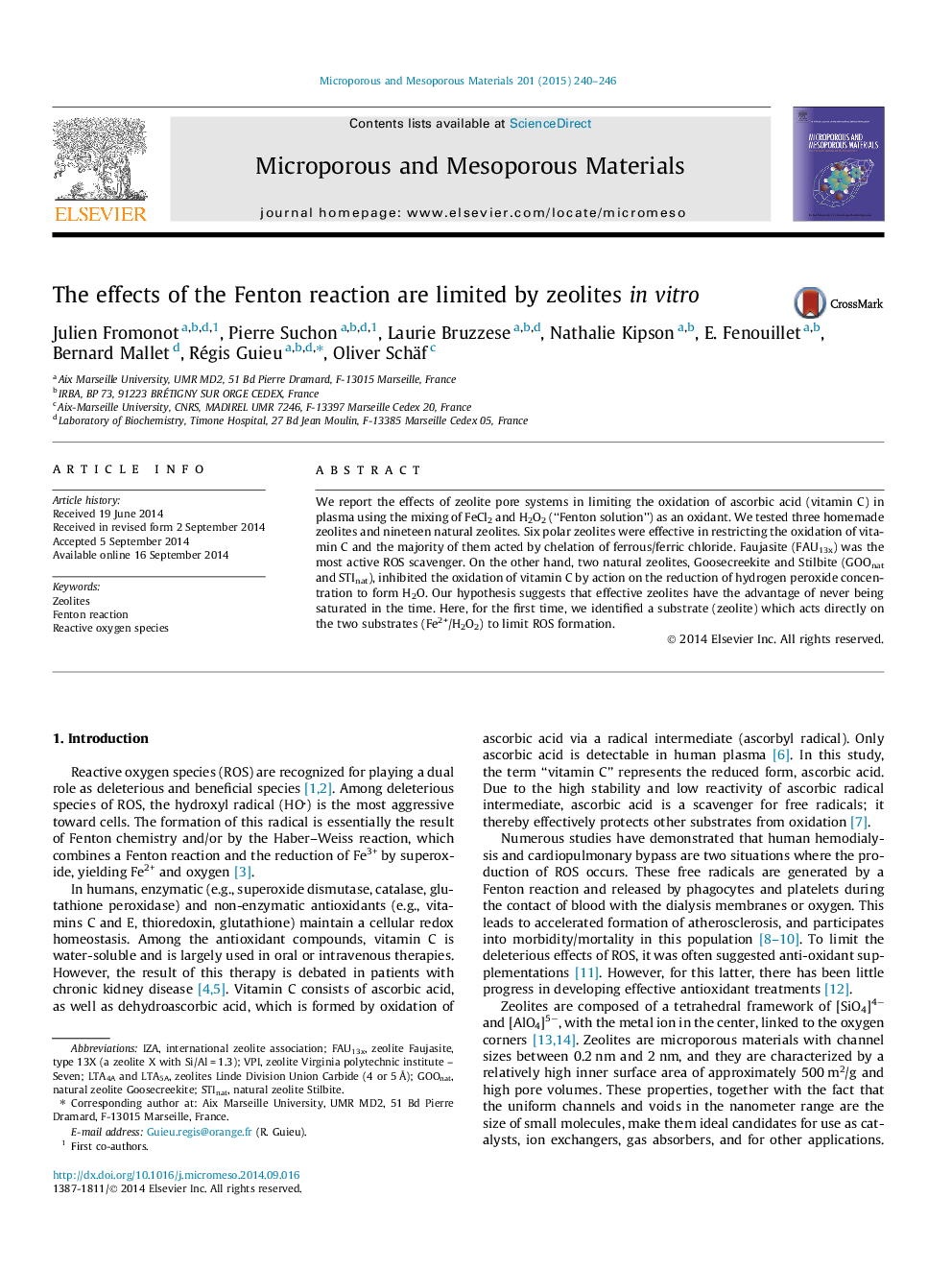| Article ID | Journal | Published Year | Pages | File Type |
|---|---|---|---|---|
| 72791 | Microporous and Mesoporous Materials | 2015 | 7 Pages |
•Reduction of hydrogen peroxide in water by zeolites: an eternal process.•Polar zeolites are effective in restricting oxidative stress.•Effective zeolites have the advantage of never being saturated in the time.
We report the effects of zeolite pore systems in limiting the oxidation of ascorbic acid (vitamin C) in plasma using the mixing of FeCl2 and H2O2 (“Fenton solution”) as an oxidant. We tested three homemade zeolites and nineteen natural zeolites. Six polar zeolites were effective in restricting the oxidation of vitamin C and the majority of them acted by chelation of ferrous/ferric chloride. Faujasite (FAU13x) was the most active ROS scavenger. On the other hand, two natural zeolites, Goosecreekite and Stilbite (GOOnat and STInat), inhibited the oxidation of vitamin C by action on the reduction of hydrogen peroxide concentration to form H2O. Our hypothesis suggests that effective zeolites have the advantage of never being saturated in the time. Here, for the first time, we identified a substrate (zeolite) which acts directly on the two substrates (Fe2+/H2O2) to limit ROS formation.
Graphical abstractFigure optionsDownload full-size imageDownload as PowerPoint slide
